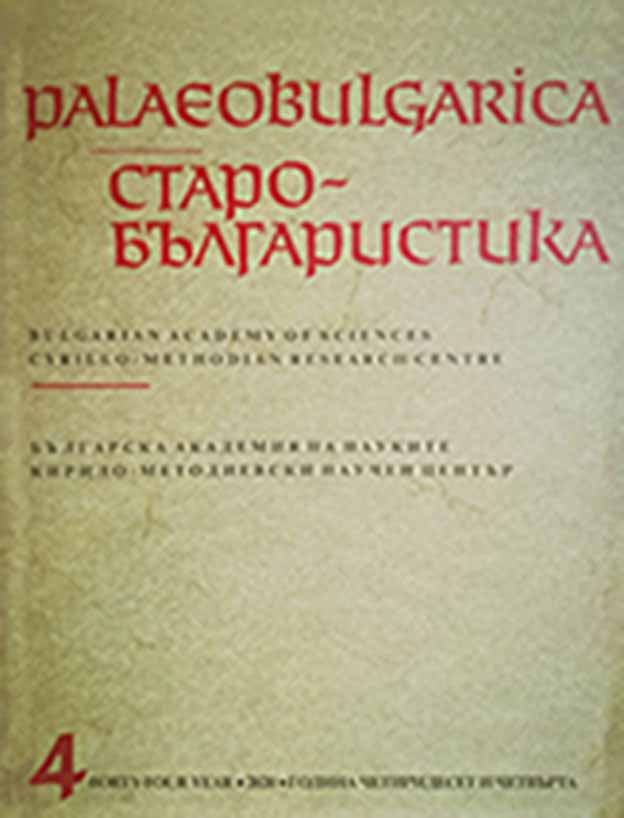Византийские Лексиконы и ранняя славянская переводческая деятельность
Byzantine Lexicons and Early Slavic Translation Activities
Author(s): Margarita Ivanovna ChernyshevaSubject(s): Language studies, Language and Literature Studies
Published by: Кирило-Методиевски научен център при Българска академия на науките
Keywords: early Slavic translators; Byzantine Etymologicons; Byzantine Lexicons; etymologization; bilingual doublets.
Summary/Abstract: The article analyzes such phenomena of the early Slavic translation activities as etymologization and bilingual doublets (a type of lexical variation). I. The study of the etymologization phenomenon has shown the existence of several approaches to etymologized words: 1) reproduction of Greek originals in Slavic translation; 2) non-etymologization, i.e. ignoring or conscious rejection of the Greek etymology in the Slavic translation; 3) tentative etymologization; 4) individual decisions in translation. The analysis shows that the early Slavic translators were familiar with the material of the Byzantine Etymologicons. II. The comparison between the bilingual doublets and the material of the Byzantine Lexicons reveals the presence of similar or even identical material. This allows us to presume that in the choice of words and in the elaboration of their meaning the first Slavic translators were able to turn to the conceptual and the synonymic selections of the Byzantine Lexicons. It is obvious that the early Slavic translation activities were part of the general humanistic processes of their time. Not only do they reflect the high culture of the translators, but also their aspiration to incorporate their knowledge in the translation by using all available resources.
Journal: PALAEOBULGARICA / СТАРОБЪЛГАРИСТИКА
- Issue Year: 2020
- Issue No: 4
- Page Range: 27-46
- Page Count: 20
- Language: Russian
- Content File-PDF

